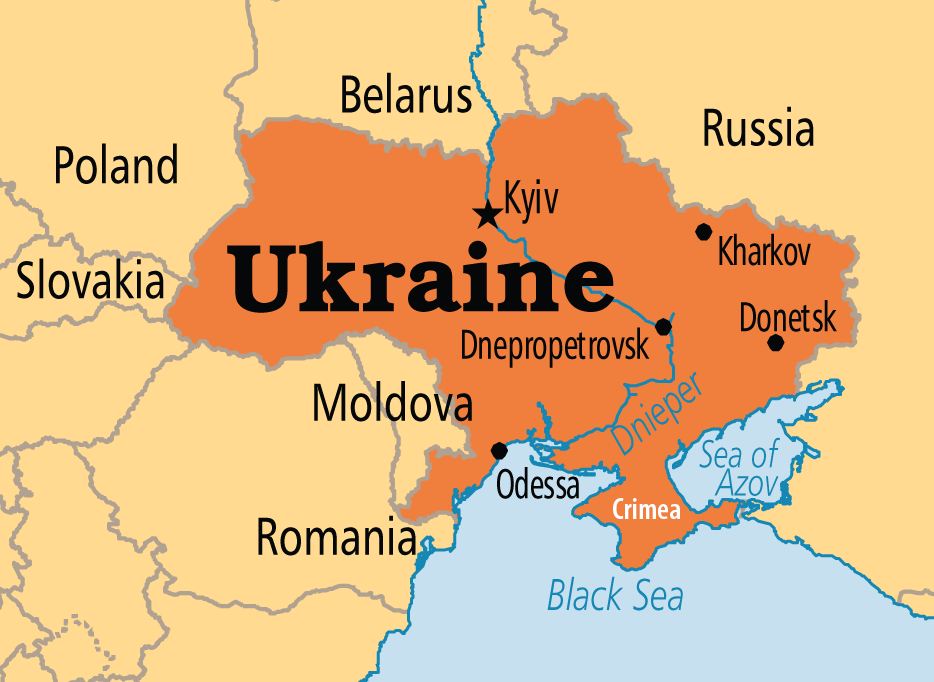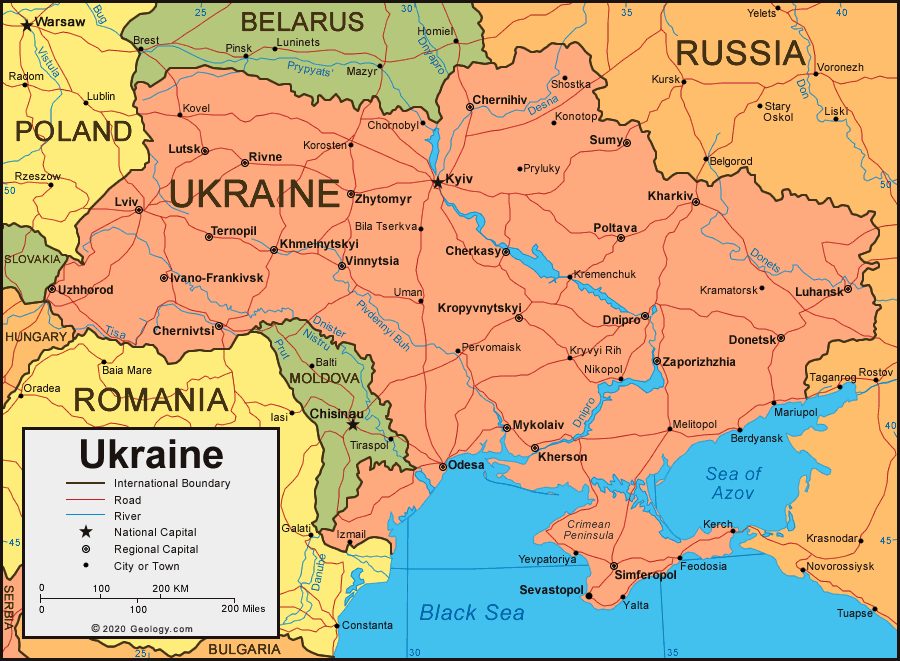Background on the crisis in Ukraine

Right now, there is a dangerous escalation of tensions at the Russia/Ukraine border and the real possibility of a military conflict that could easily spiral out of control. NATO has played a major role in exacerbating this conflict and we must now call on NATO to play a role in its de-escalation.
The Minsk II Accord has successfully prevented a new escalation of the Civil War in Ukraine since 2015. Ukraine’s people are divided, with millions speaking Russian and looking to the East, while others in the West are more oriented towards Europe. The Minsk II Accord, negotiated by France, Germany, Russia, Ukraine and the Organization for Security and Co-operation in Europe (OSCE), recognized these divisions and sought a political resolution to them, one that would explicitly include greater autonomy for the Donetsk and Luhansk regions.
But NATO and the United States have encouraged the Ukrainian government to ignore its obligations under Minsk II, and to instead reassert absolute sovereignty over the Donbass region. They have supplied more powerful weapons, which Ukraine has deployed and used in Eastern Ukraine.
The United States bears a great deal of responsibility for this crisis, starting with its support for the violent overthrow of the elected government of Ukraine in 2014. In persisting with its support for the coup, the United States simply ignored the February 2014 agreement for a political transition negotiated by the European Union and the Foreign Ministers of France, Germany and Poland, all NATO members.
The U.S.-backed coup reversed the will of the majority of Ukrainians who elected the Yanukovych government, and led directly to the secession of Crimea and the Donetsk and Luhansk regions from Ukraine.
And yet, under the leadership of NATO Secretary-General Jens Stoltenberg, NATO has played a supporting role as the United States has internationalized the post-coup political division of Ukraine and escalated it into a geopolitical crisis. Ukraine is not a NATO member, and NATO is a military alliance, not a universal international organization like the United Nations. NATO can therefore play no legitimate or helpful role in this crisis, except to support the diplomatic efforts of its members, the OSCE and the UN.
NATO members France, Germany and Poland have all played constructive diplomatic roles in the crisis in Ukraine in the past, and NATO should support diplomatic efforts by its European members to resolve this European problem, instead of acting as a sheep-dog to round them up and herd them into line behind dangerous U.S. policies.
NATO expansion contributed greatly to the roots of the present crisis, by violating the agreements that brought the original Cold War to an end and reunified Germany. NATO should have kept its promise not to expand eastward. Instead, it has added 11 member countries that were once either Soviet republics or members of the Warsaw Pact, to triumphantly march a Western military alliance right up to Russia’s borders.
Russia has always been opposed to Ukraine entering NATO. In 2008, when Ukrainian President Viktor Yushchenko first applied for NATO membership, President Putin called Ukrainian membership "a direct threat" to Russia. But neither the U.S. nor NATO \should go to war with Russia to reunify Ukraine by force. NATO should recognize and respect Ukraine’s independence, neutrality and the will of all its people, and fully support the Minsk II Protocol.
Tensions with Russia have also been exacerbated by counterproductive NATO military exercises clearly intended to intimidate Russia. There is no equivalence between Russia conducting military exercises and troop movements within its own borders and NATO members flying in thousands of North American and Western European troops and deadly weaponry to conduct exercises directly across those same borders.
The world cannot risk a military confrontation between the world’s two most heavily armed nuclear states–the United States and Russia. What we need instead is vigorous diplomacy to promote de-escalation and seek a negotiated solution, to avoid war and advance the Minsk II diplomatic process. That will be in the best interest of all NATO nations, the Russian people, all the people of Ukraine, and the world community, and that is what we must demand from NATO’s Secretary-General. source - CodePink

